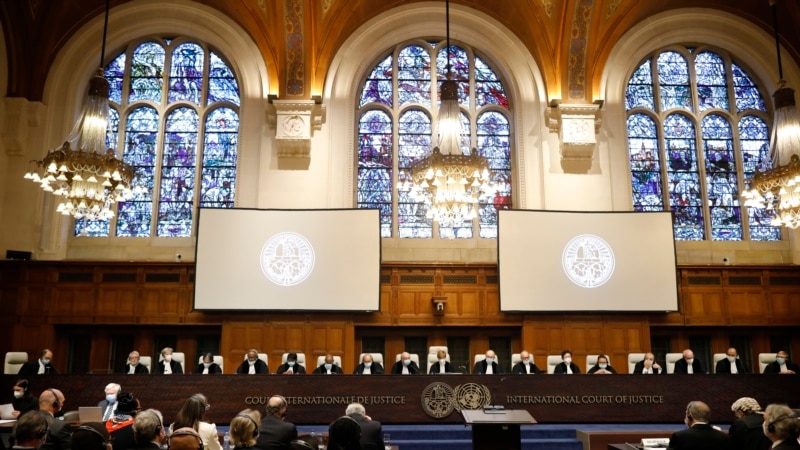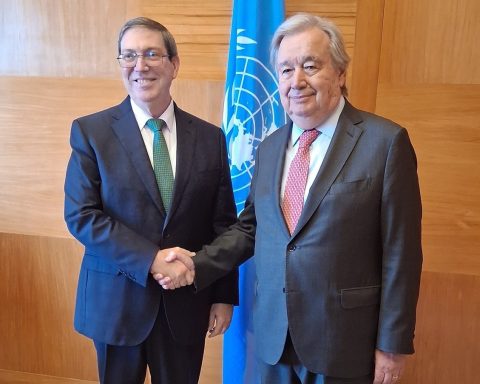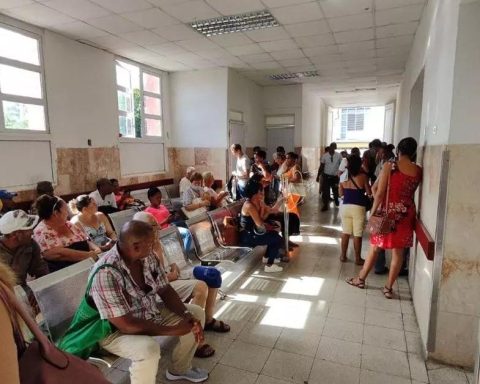
The International Court of Justice (ICJ) in The Hague denied Nicaragua’s requests to expand its continental shelf beyond 200 nautical miles, according to a verdict handed down on Thursday by the highest court judges.
Since the beginning of the 20th century, Nicaragua and Colombia have had a dispute over the rich fishing and hydrocarbon waters of the Caribbean Sea, although the two countries do not share a land border.
“Nicaragua is not entitled to a line extended within 200 miles of a Colombian baseline. Nicaragua’s request in the first part cannot be sustained. Within the nautical mile baseline of San Andrés y Providencia, Nicaragua has no rights to an extended platform,” said Judge Joan Donoghue, president of the International Court of Justice.
The rulings of the International Court of Justice are final.
Nicaragua had asked The Hague to delimit its continental shelf in the Caribbean Sea, but the court determined with 13 votes in favor and 4 against that Managua’s request was ambitious.
The process involves control over a 75,000 square kilometer area of the Caribbean Sea currently used for artisanal and industrial fishing. The area also includes sections of a UNESCO-endorsed marine reserve.
Colombian President Gustavo Petro spoke on his Twitter account and said that it is “a great victory” for his country.
“Great victory for Colombia in The Hague. The ICJ did not agree to Nicaragua’s claims to expand its continental shelf. We hope with this ruling to close the border dispute and focus on bringing sustainable development to our archipelago,” the president wrote.
Álvaro Leyva Durán, Minister of Foreign Affairs of Colombia, celebrated the ruling in favor of the South American nation: “I enjoy the triumph of my country. I call for the union of all Colombians. Behind the hatred, despair, senseless struggles.”
Nicaragua: Court upheld the 200 miles of the 2012 ruling
The new maritime borders increased Nicaragua’s continental shelf and economic exclusion zone in the Caribbean, giving it access to offshore oil and gas deposits, as well as fishing rights in those waters.
The ICJ had ruled in April last year that Colombia must “immediately cease” its patrols and its attempts to control fishing in areas of the Caribbean that, according to the court, are within Nicaragua’s exclusive economic zone.
The Nicaraguan government recognized on Thursday the sentence of the International Court on a territorial conflict with Colombia in Caribbean waters as “firm, final and binding.”
In statements to the Nicaraguan official media, Carlos Argüello, Managua’s representative in The Hague, assured that the Court maintained the 200 miles of Nicaragua from the 2012 ruling.
“That was clear and reaffirmed. What we were discussing here was a point that was not legally clear and that was whether we could extend within 200 miles of Colombia. The Court determined that this point had never been defined by law and that we had to stay until 200 miles in this case,” Argüello acknowledged.
He said that he had no doubt that Nicaragua would abide by the ruling as it has done before.
“There are still areas that were not clearly included in the sentence and they are things that we have to study because our platform extends beyond 200 miles but we will have to see the areas where Colombia’s 200 miles do not reach and they are there” he added.
Opponents cataloged Nicaragua’s foreign policy as a “failure.”
“Past rulings had balanced the positions of both parties. In this case they did not give Nicaragua anything, which reflects the weakness of the arguments,” former presidential candidate Juan Sebastián Chamorro said on Twitter.
Old conflict and the arguments of the parties
The ruling clarifies a longstanding conflict between Colombia and Nicaragua. In 2001, Nicaragua made the first of three lawsuits before The Hague to claim sovereignty over the islands of San Andrés, Providencia and Santa Catalina.
Nicaragua, wanting control over the archipelago, filed a lawsuit before the Court with the intention of extending its continental shelf beyond 200 miles, expanding it by an additional 150 nautical miles of marine soil and subsoil.
Colombia, for its part, has supported scientific, legal and institutional arguments indicating that the Nicaraguan claim has no foundation. In this sense, the Colombian authorities have insisted that it has “full ownership over the maritime area claimed by Nicaragua”.
The Colombians have also focused their arguments on defending the traditional fishing rights of the Raizal community and have reiterated on multiple occasions that the case is about Colombian rights and freedoms in the area.
[Contiene información de Reuters]
Connect with the Voice of America! Subscribe to our channel Youtube and activate notifications, or follow us on social networks: Facebook, Twitter and instagram
















